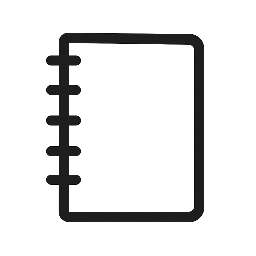Houses for Sale Oakville cater to a wide range of buyers, offering options that suit different budgets and lifestyles. Oakville features a diverse housing market, whether you’re seeking a family home, a modern condo, or a luxury property. The town’s neighborhoods provide a perfect balance of amenities and strong community appeal.
The key to finding the right house in Oakville is understanding the current market trends and knowing which areas best suit one’s needs. This knowledge helps buyers make informed decisions in a competitive and evolving real estate environment.
With its mix of urban convenience and natural beauty, Oakville continues to attract buyers seeking stability and quality of life. Exploring available listings gives insight into the different styles and price points that the town offers.
Oakville Real Estate Market Overview
The Oakville housing market reflects steady demand influenced by local amenities, commuting access, and community appeal. Price trends and neighborhood popularity reveal where buyers focus their attention.
Current Housing Trends
Oakville has seen a moderate increase in home sales volume over the past year. Demand remains strong for detached homes, especially family-sized properties with larger lots.
There is noticeable growth in interest for townhouses and condos, largely due to affordability challenges with single-family homes. Buyers increasingly consider properties near transit routes and schools.
Inventory levels are balanced, with no extreme shortages or surpluses. This balance helps stabilize prices while still creating competitive buying situations in desirable areas.
Average Home Prices
As of mid-2025, the average price for a detached home in Oakville is approximately $1.6 million. Townhouses average around $900,000, while condos typically sell near $650,000.
Price differences exist based on home size, condition, and neighborhood. Newer developments tend to command higher prices, particularly near Lake Ontario and Oakville’s downtown core.
Year-over-year price growth is estimated at 4%. This rate reflects steady appreciation without sharp spikes that could disrupt market stability.
Popular Neighborhoods
Downtown Oakville remains a sought-after area due to its walkability, dining options, and waterfront access. Homes here often feature historic architecture and modern updates.
Bronte is popular for its marina, parks, and community events. It appeals to buyers seeking a more relaxed, village-like atmosphere within the town.
West Oakville attracts families looking for larger properties and top-rated schools. It offers suburban amenities with convenient connections to Toronto and surrounding cities.
Finding Houses for Sale in Oakville
Oakville offers a variety of housing options suited to different preferences and budgets. Buyers should consider home styles, local experts’ guidance, and available financing options when searching for properties.
Types of Homes Available
Oakville’s housing market features detached houses, townhomes, and condominiums. Detached homes provide more space and privacy, often priced higher due to lot size.
Townhomes appeal to buyers seeking affordability with a community feel. They usually have shared walls but maintain individual entrances and some outdoor space.
Condominiums offer lower maintenance responsibility and amenities like gyms or pools. Many availabilities lie near transit hubs and downtown Oakville, suitable for commuters.
Working With Local Realtors
Local realtors understand Oakville’s neighbourhoods and market trends. They help buyers find listings matching criteria and negotiate purchase terms.
Experienced agents provide insight into school districts, zoning rules, and community features vital for informed decisions. They also manage paperwork and timelines.
Choosing a realtor licensed in Ontario with a proven track record of sales in Oakville is advisable. Interviews or referrals ensure compatibility with a buyer’s needs.
Financing and Mortgage Options
Buyers should explore mortgage plans available through Canadian banks and credit unions. Options vary, including fixed or variable rates and amortization periods.
Pre-approval determines borrowing capacity, streamlining house hunting and strengthening offers. Down payments typically range from 5% to 20%, depending on loan type.
Government programs like the First-Time Home Buyer Incentive may assist qualified individuals. Consulting mortgage brokers helps identify the best rates and terms.


Leave a Reply